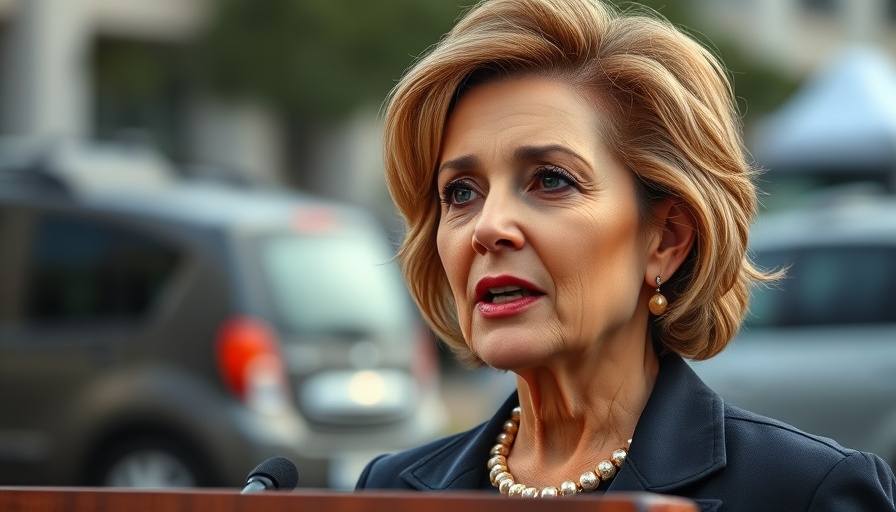
Navigating the Shadows of Fiscal Policy: What Pelosi Warns Us About
In her recent remarks, Speaker Nancy Pelosi outlined a compelling argument against the GOP's proposed tax bill, which she argues could lead to detrimental effects on America's working families. The audacity of the bill, likened to a "reverse Robin Hood," aims to redistribute wealth from low-income households to the richest 1% of Americans. This draws parallels to previous legislative activities in 2017 that also benefited the wealthiest at the expense of crucial social safety nets, such as Medicaid and Social Security.
In Pelosi: This Is Why It Would Be Bad For The U.S. To Pass GOP's One Big Beautiful Bill, the discussion dives into the implications of a proposed tax bill, exploring key insights that sparked deeper analysis on our end.
The Fiscal Consequences of Tax Breaks for the Wealthy
Pelosi highlights critical statistics that symbolize the inequitable fiscal policies in play. The bill could potentially add up to $4.5 trillion to the national debt while simultaneously proposing cuts of over a trillion dollars from critical programs such as Medicaid and SNAP. Such cuts have profound implications, removing vital supports to families in need while lining the pockets of billionaires.
Mobilization as a Mechanism of Change
Amidst these revelations, Pelosi emphasizes the importance of public mobilization. Just as Americans rallied to defend the Affordable Care Act in 2017, she suggests that collective action can play a crucial role in protecting these vital services. By calling constituents in Republican strongholds to voice their concerns, the speaker urges citizens to make their representatives accountable. It is within the power of the people to stir the conscience of their elected officials, creating a powerful frontline against proposed fiscal injustices.
Healthcare: An Essential Benefit for All
The conversation surrounding healthcare reform is not just about low-income families; Pelosi sheds light on the fact that Medicaid serves a broader swath of the population, including middle-class families needing long-term care. By demonizing programs that assist the most vulnerable, the GOP's proposal highlights a misunderstanding of their vital social role. Understanding this duality can help reshape the discourse around healthcare and why its protection is everyone's responsibility.
Looking to the Future: A Call for Awareness and Preparedness
As we navigate these pressing issues, Pelosi's call to action reminds us that the upcoming elections are pivotal. Her vision sees a future where Hakeem Jeffries could lead the House, providing a renewed hope for progressive governance that prioritizes the needs of everyday Americans over billionaires. Engaging in the political process now is crucial; aware citizens can influence change, steering the national dialogue toward equity and protection of public services.
Counterarguments Worth Considering
While Pelosi’s arguments are compelling, it’s essential to consider the perspectives of those advocating for tax cuts. Proponents often argue that reducing taxes on the wealthy can stimulate economic growth and lead to job creation. However, historical assessments suggest that the wealth does not trickle down as promised, leading to an ongoing debate about the best ways to foster economic health for all citizens.
The Imperative of Civic Engagement
For American citizens today, the implications of these legislative maneuvers cannot be overstated. In a time when healthcare access and economic stability are under siege, your engagement is paramount. Mobilizing constituents and pushing back against detrimental fiscal policies can lead to more equitable governance. Information sharing through social channels and community engagement will be key in galvanizing public opinion.
In conclusion, as highlighted during Pelosi's address, the peril of these proposed policies extends beyond conjecture—it's a tangible threat to the framework of American welfare. Together, we must safeguard the rights and benefits that support our nation's most vulnerable, ensuring our democracy remains resilient and responsive.
 Add Element
Add Element  Add Row
Add Row 



 Add Row
Add Row  Add
Add 


Write A Comment